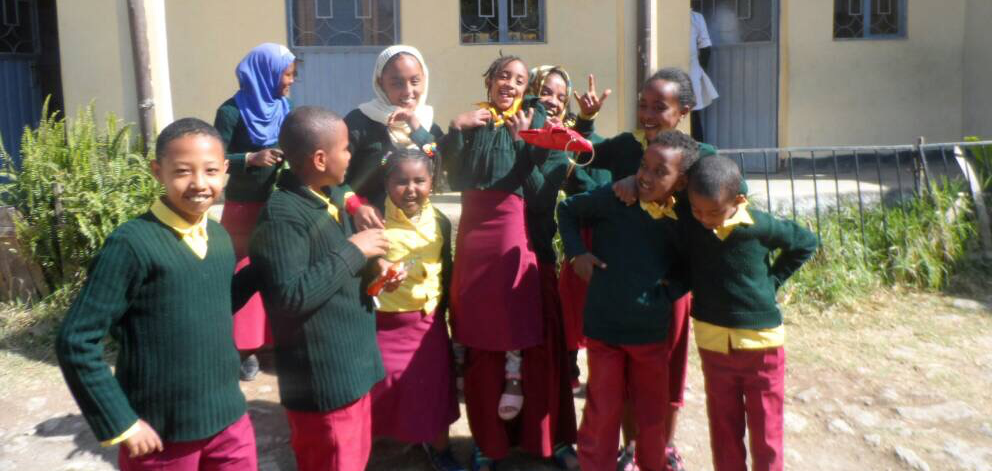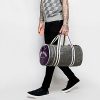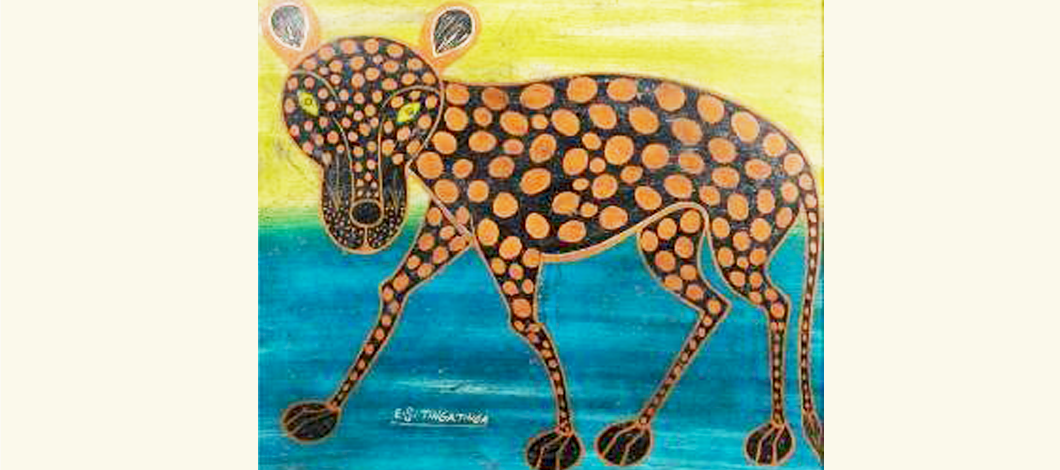
Singing with their hands
Full-lung singing and the wild clapping of a hundred small hands are heard well before stepping through the tall metal gates of Jerusalem Inclusive School.
In a small compound – on a cobbled back road in one of those outer suburbs of Addis that wind coolly into the Entoto foothills – students shake off the early chill with song and dance as the last of their classmates arrive.
What’s unusual is that the children are also singing with their hands. Just over half of those making all the noise are actually deaf or disabled – and sign language is part of the curriculum for all.
…
In Ethiopia, over 1.7 million people have a hearing impairment and 15 million live with some other form of disability.
Jerusalem is one of just a few primary schools in the country catering to deaf and special needs children – and it’s the only school in the capital providing a space for disabled and able-bodied children to learn side-by-side.
Of its 70 students this year, 43 live with some kind of disability, be it cerebral palsy, autism, an intellectual disability or hearing impairment. All are from low-income families.
Founder and Director Yihayis Channie says there is a huge lack of opportunity for these children, due to ongoing stigma around disability and the everyday constraints of poverty.
At his school – which teaches kindergarten through to grade four – students learn sign language alongside regular subjects like mathematics, Amharic and English. Specialist care and occupational therapy are provided for those who need it – and for many, tuition is free.
“Our motto is: ‘Students who learn together, learn to live together,’” says Channie.
“Here, they grow and compete with each other as equals, they develop respect and a soft heart for each other – and they share the same hopes for their futures.”
“If we want a more inclusive world, this has to begin with the children,” he says.
…
Channie understands well the challenges these children face.
When he was just 24, he lost his hearing in a car accident and was forced to build a new life for himself in a city preoccupied with its own struggles. He gathered money begging outside the church and put himself through night school; studying sign language and eventually graduating as a kindergarten teacher – before taking up a role as a field worker with Cheshire Home, a British NGO running community-based rehabilitation (CBR) programs for disabled children.
Channie’s main job was to find those children and encourage their families to send them to school.
“Not only were they just sitting at home, but often, they’d be locked in separate quarters of their compounds, hidden,” he says. “There is shame – and in some cultures, disability is still seen as a curse.”
He began running sign language classes for parents and became involved in awareness-raising programs in the neighbourhood; holding workshops to educate people about what it means to be disabled – “How its not the end, how it’s not an inability to live and to live well.”
In 2005, when he heard that the CBR programs would be shut down– and feeling a huge responsibility for the families he was working with – he established Jerusalem Inclusive.
The school has since had 4,000 students pass through its gates.
…
8-year-old Tsion Degsew is one of them – and one of Jerusalem’s many success stories.
Born with a hearing impairment, Tsion was unable to communicate even with her closest family until, at the age of four, she was enrolled at Jerusalem and taught sign language, together with her mother. Tsion quickly became an outstanding student and this year, she is fast making new friends at a regular government school. She has also, to everyone’s delight, topped her class.

“Sign language is not usually something you learn from your family,” says Channie. “Some lucky kids like Tsion will be sent to signing school when they’re young but most of the time, hearing impaired people learn it after their 20s.
“That’s usually too late for them to go back to regular school so most don’t finish their education. Especially in the rural areas, they don’t learn it and they won’t communicate their whole life. These people are not put to use in society; they don’t work and instead of contributing, they are seen as a burden.”
That is something Esubalewu, Asebe, another child making strides at Jerusalem, refuses to be.
Esubalewu, born with cerebral palsy, first came to the school as a nine-year-old on his mother’s back because he couldn’t walk. His arms and legs were covered in permanent scratches from crawling. The family’s situation was dire: They were homeless, Esubalewu had recently lost his father to HIV/AIDS and his mother was living with the disease herself.
For mother and son, Jerusalem became a haven; one which provided years of physiotherapy and a much-needed support network.
As well as becoming a determined student, Esubalewu has learnt, against all odds, to walk. And with a little support, the now tall 13-year-old is one of the most enthusiastic dancers at assembly each morning.

…
For both Tsion and Esubalewu, the future is full of possibility. But most disabled children in their neighbourhood won’t have the same opportunities.
Due to ever-rising rent and high running costs, Channie is looking at having to close Jerusalem’s gates before the end of the school year. And once again, he is feeling the weight of his community on his shoulders.
There is really nowhere else for the children to go, he says. The gap in services for special needs kids in Addis Ababa is already too wide.
Only 400 of the 6,000 disabled children living in the Kolfe Keranyo subcity where Jerusalem sits, for example, are currently in school.
Channie fears that with the closure of Jerusalem, community attitudes about disability will worsen and parents will be discouraged from seeking a place for their children to continue learning. The handful of other special needs schools around Addis Ababa are hard to get into, expensive and far away.
“The children themselves will be isolated again at home and they’ll feel worthless.”
Channie dreams of being able to build a school of his own one day. He also wants to open a training institute to share expertise developed over 13 years teaching inclusive classrooms – and ultimately, to improve the quality of education available to disabled children throughout Ethiopia.
But for now, he’s fighting for an affordable space on the outskirts of town – and just a little more time.
“These kids deserve a place in our society,” he says. “They deserve the basic right to an education, they deserve the right to dream big – and actually, we will all lose out if we don’t let them.”
Jerusalem Inclusive School is registered as a private kindergarten and primary school in Kolfe Keranyo, Addis Ababa. For more information about the school and how you can help, please send a text message to Yihayis Channie on +251 0911 108 781, email Jerusalem_inedu@yahoo.com or bezabezina@gmail.com.











